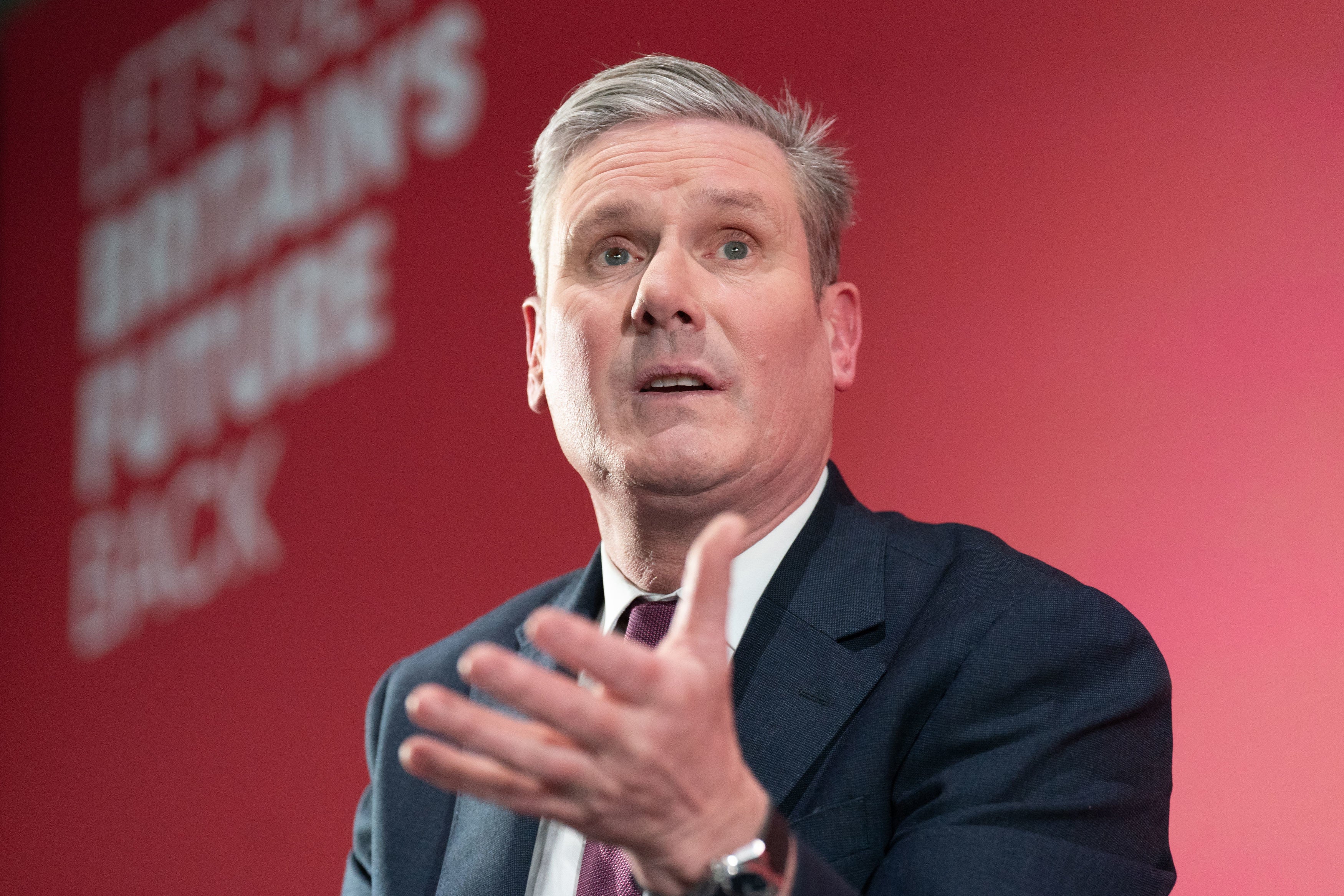The Independent's journalism is supported by our readers. When you purchase through links on our site, we may earn commission.
It’s not just the Tories getting it badly wrong on tax and business...
Despite its 20-point lead, Labour is badly faltering on the issues that matter, writes Andrew Grice. Are Keir Starmer’s critics right to say that he represents a continuation of the same old status quo?


It’s going to be an unusual general election. Conventionally, Labour promises a multibillion-pound boost to public services with a mantra of “schools and hospitals”. The Conservatives normally campaign on the economy, dangling the carrot of tax cuts.
This year, both main parties feel constrained by a flatlining economy and the bone-crushing straitjacket left behind by Liz Truss when she fled Downing Street. The unstated number one fiscal rule is that neither main party can risk a fight with the financial markets. Thanks, Liz.
Having talked up tax cuts in his March Budget, Jeremy Hunt warned the cabinet this week that his room for manoeuvre is limited by “major structural weaknesses” in the economy.
At every opportunity, the Tories accuse Labour of "flip-flopping" but are busily doing the same. It’s obvious the chancellor is now downplaying expectations in the hope the tax cuts he announces on 6 March look bigger on the day.
The Tories are shooting the messengers. Even the mild-mannered Hunt criticised the Office for Budget Responsibility (OBR) chairman Richard Hughes for telling the inconvenient truth that its projections for the public finances are beyond a “work of fiction” because of his £20bn of unspecified cuts over the next few years. Fifty Tory backbenchers wrongly accused the OBR of underestimating the impact of tax cuts and want to see its wings clipped.
However, Labour is not a happy ship either. Despite a 20-point opinion poll lead, opposition frontbenchers are surprisingly gloomy because of the state of the economy they would inherit. It hardly makes for a positive “time for change" pitch. Yet Labour’s constraints are partly self-imposed. The party grabs headlines for what it will not do – such as Rachel Reeves’s pledge not to raise corporation tax over a five-year parliament.
“We were never going to touch it once the Tories put it up to 25 per cent,” one Labour adviser whispered.
Labour would give the OBR more powers to impose a fiscal lock on a Starmer government. The party’s one big spending plan, £28bn a year for green investment, is suffering a slow death by a thousand briefings.
Some of Keir Starmer’s natural allies on the soft left are uneasy. Their jitters rose when Reeves announced that Labour would not restore the cap on bankers’ bonuses. It’s another example of today’s narrow politics in which the Tories and Labour fight on the same patch of territory.
Ed Balls, a predecessor as shadow chancellor, is worried that Reeves is unnecessarily “boxing herself in”. He told his Political Currency podcast with George Osborne that Reeves’s task would be “very difficult” if the fiscal inheritance is tougher than expected because she is “removing room for manoeuvre”.
Starmer and Reeves have won the support of business, as Thursday’s love-in with company bosses showed. The sold-out event was slick, professional and convincing. Starmer, like Reeves, made a good speech but he rather spoilt the party by refusing to finally kill off the £28bn pledge. The mixed signals on it hardly provides the “stability” Labour repeatedly promised business.
I’m told there is a rare difference of opinion between the Labour leader and his shadow chancellor. In Starmer’s right ear, Reeves tells him to remove the £28bn millstone around Labour’s neck to blunt Tory attacks. For Reeves, fiscal credibility comes first; Labour still has work to do in reassuring the 2019 Tory voters it needs to win over that it can be trusted on the economy.
But in Starmer’s left ear, his chief of staff Sue Gray and shadow climate change and net zero secretary Ed Miliband warn him he will look “weak” if he caves in to Tory bullying. One ally of Reeves in this intense debate told me: “The longer he [Starmer] digs in, the happier the Tories will be. It’s a classic trap. Either way, he loses but if he sticks with the figure, he loses more for longer.” Those who want to bury the figure are arguing that £28bn of public money is not needed because the private sector will invest in the green economy.
The situation has been further confused by senior shadow minister Darren Jones, who has privately confirmed that the party has already committed to ditching the pledge, focusing instead on the party’s previously announced plans to get Britain off fossil fuels.
Some senior Labour figures wonder whether the leadership is overdoing the caution, recalling that New Labour offered “prudence with a purpose” – not for its own sake. Six out of 10 voters think Starmer “represents more of the same,” according to More in Common. Luke Tryl, its UK director, said ditching the £28bn pledge would reinforce “Starmer’s (very real) weakness he doesn’t stand for anything.”
Although Labour is not short of micro policies, his internal critics worry that a Starmer government would lack a mandate for radical change. Looking ahead to what will inevitably be a cautious Labour manifesto, they privately pose a damning question with a double meaning: “What’s left?”






Join our commenting forum
Join thought-provoking conversations, follow other Independent readers and see their replies
Comments